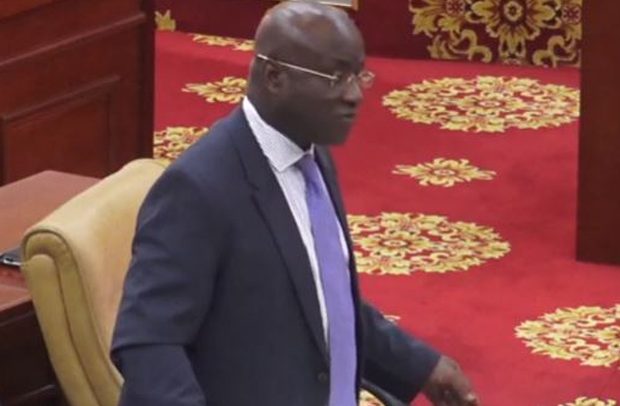Osei Kyei Mensah-Bonsu
GOVERNMENT IS proposing the introduction of a COVID-19 Health Levy of a percentage point increase in the National Health Insurance Levy and a percentage point increase in the VAT Flat Rate to support expenditures related to COVID-19.
This is because the COVID-19 pandemic has caused additional health spending that far exceeds the annual budget for health.
Minister for Parliamentary Affairs, Osei Kyei Mensah-Bonsu, who presented the 2021 Budget Policy and Economic Policy to Parliament on Friday, said some of the actions that were being implemented by government to address the pandemic included the procurement of vaccines, the first batch of 600,000 doses from the COVAX facility which had already been delivered while an additional 17,600,000 vaccine doses are to be delivered by June, with more to come in the course of the year.
As at Wednesday, March 10, 262,335 Ghanaians received the first dose of the vaccines.
Government is also undertaking the establishment of 14 medical waste treatment facilities across the country for safe disposal of medical waste in collaboration with the private sector, while 33 major health projects have been approved for implementation at a cost of €890 million.
To date, 14,600,000 pieces of personal protective equipment have been produced domestically for health workers, students, teaching and non-teaching staff of tertiary and secondary educational institutions.
“Agenda 111 will see to the construction of 100-bed district hospitals in 101 districts with no hospitals, seven regional hospitals for the new regions, including one for the Western Region, the construction of two new psychiatric hospitals for the middle belt and northern belt and the rehabilitation of the Effia-Nkwanta Hospital in the Western Region.
“There is the need to recruit more healthcare professionals in addition to the100,000 recruited in the first term of the President,” he noted.
Sanitation
In order to take care of the sanitation problem in the country, he said government was proposing a Sanitation and Pollution Levy (SPL) of 10 pesewas on the price per litre of petrol/diesel under the Energy Sector Levies Act (ESLA).
Proceeds from this levy will be used to improve urban air quality and combat air pollution; support the re-engineering of landfill sites at Kpone and Oti; support fumigation of public spaces, schools, health centres and markets; revamp/reconstruct poorly managed landfill facilities; construct more sustainable state-of-the-art waste treatment plants both solid and liquid in selected locations across the country; and construct waste recycling and compost plants across the country.
It will also be used to construct more sanitation facilities to accelerate the elimination of open defecation; construct final treatment and disposal sites for solid and liquid waste; provide dedicated support for the annual maintenance and management of major landfill sites and other waste treatment plants and facilities across the country; and construct medical waste treatment facilities to prevent generation of infectious diseases, especially under the Coronavirus Treatment Programme.
BY Samuel Boadi


